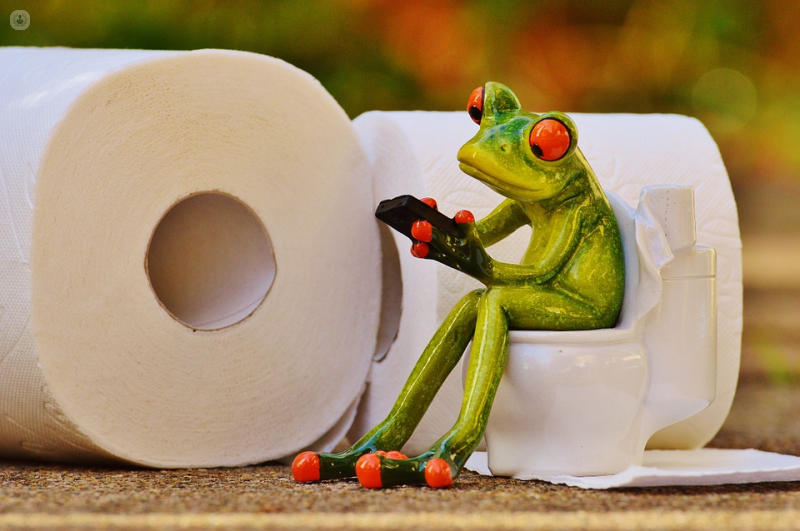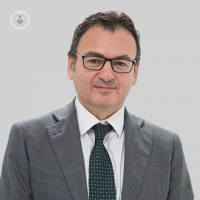The most commonly asked questions about haemorrhoids
Written in association with:Why do haemorrhoids bleed? Does everyone have haemorrhoids? How can I avoid haemorrhoids? Mr Pasquale Giordano, an expert colorectal surgeon, gives us some answers.

Why do haemorrhoids bleed?
Haemorrhoids normally bleed because they have become engorged, congested and swollen. As haemorrhoids are made of blood vessels, those blood vessels will eventually burst and bleed. This normally happens when there is an increase or prolonged increase in the abdominal pressure which results in more blood being pumped into the haemorrhoids which eventually burst and bleed. This is why patients with constipation, patients who require excessive straining to open the bowel or people who spend too long sitting on the toilet are more likely to suffer with haemorrhoidal bleeding.
Haemorrhoidal bleeding normally consists of bright red blood because it is highly oxygenated and usually appears after defecating. Rectal bleeding is a really important symptom that should not be ignored. Although rectal bleeding is common and is frequently associated with haemorrhoids, there are other more serious diseases where rectal bleeding can occur. Therefore, any time a patient suffers from rectal bleeding, you should talk to a doctor so that the cause of the bleeding can be established, and the right treatment is given.
What are the most common misconceptions about haemorrhoids?
The first and most important thing about haemorrhoids is that haemorrhoids are part of the normal anatomy of our anal canal - they are meant to be there. They do not suddenly appear unexpectedly, but in reality it is not uncommon for normal haemorrhoids to become abnormal with painful symptoms. Therefore, haemorrhoids are meant to be there and we all have haemorrhoids.
One other very important thing that I would to like to stress is that not everything that happens and goes wrong around the anus is related to the haemorrhoids. Too often patients believe they have problems with their haemorrhoids, when on inspection there are no abnormalities with their haemorrhoids, but something else is wrong. Therefore, it is very important to understand that when there is a problem on the anal canal, we identify the actual cause of the problem and we deal with it in the most appropriate way without assuming that the problem must be related to their haemorrhoids.
What are your top tips for preventing haemorrhoids?
We all can do a number of simple things to minimise the risk of developing haemorrhoidal disease. First of all, it is fundamental that we maintain a very healthy diet and make sure that we have an intake of fibre in our diet, including fruit and vegetables. Taking fibre supplements can be recommended. Fluid intake is also very important and it is advised that you drink one to two litres of water or fluids per day to ensure that we minimise the risk of getting constipated, and hence having to strain when opening the bowel. Straining when defecating is one of the most common causes of haemorrhoidal disease.
It is also important that when you do go to the toilet to open your bowel, that you try to minimise the length of time spent sitting on the toilet. You should only stay there for as long as is needed to open your bowel. You should avoid reading or checking our emails whilst sitting on the toilet. These simple measures will minimise the risk of developing haemorrhoidal disease in the long term.
If you suffer from haemorrhoidal disease and would like to find out more, make an appointment with a colorectal specialist.


